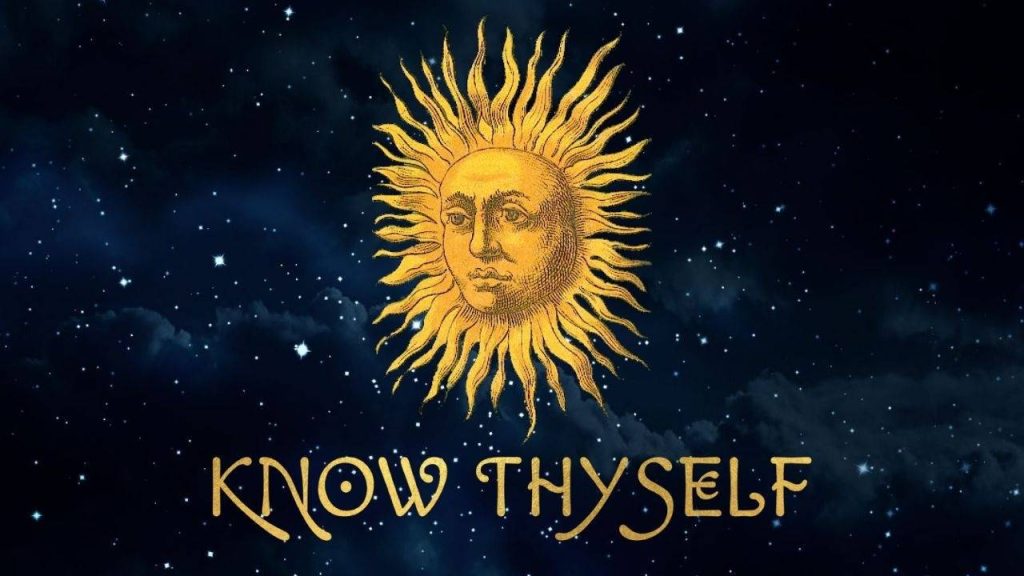Know Thyself; or, The Bright Side of The Kali Yuga ~Maya Georg
Welcome to the Kali Yuga, the age darkness and ignorance.
It is understood that this age of darkness has been ongoing for millennia, and while there is debate as to when it began and when it will end, we are surely in it. It is characterized by an absence of Dharma, right behavior and order, where Yama and Niyama, morals and ethics, are absent. It is an absence of truth, compassion, and cleanliness.
It is also a time when enlightenment is easier to attain than ever before. There are many explanations for this, one is that God is so lonely in this age that any sincere worship will be rewarded. Another, (and the one I believe makes more sense), is that we are so disconnected from our higher selves, any effort to make contact will result in exponential progress. Our everyday responsibilities and struggles are all-consuming, so much so that any spark of the divine and transcendent Self shines not like a spark, but a bonfire in the darkness. After all, enlightenment is moving from the darkness of ignorance to the light of knowledge and wisdom. And that is knowledge of the Self.
We can apply the concept of the Kali Yuga to the world around us and to ourselves. In the outer world, it manifests as a moral decay and descent into hatred, anger, and violence. In ourselves, it manifests as our own moral decay, that of not aligning and living our values. The hatred, anger, and violence is that which we hold and perpetrate against ourselves. Self-hatred is the source of misanthropy (a hatred of humanity), and is in itself the source for violence perpetrated on a global scale.
The Kali Yuga is not just an age of darkness and ignorance, but also of alienation.
We are disconnected from one another and our higher Self. This manifests as division in our communities, weakening our communities, making them less resilient and more prone to distrust and corruption. In ourselves, it brings about feelings of helplessness, a lack of purpose, anxiety, and depression.
Either way, self-knowledge is a concept that transcends any one culture or philosophy. “Γνῶθι σεαυτόν” (Gnōthi seautón), meaning “Know Thyself,” was famously inscribed at the Temple of Apollo in Delphi, a temple dedicated to the god of the sun, truth, prophecy, and healing. The concept of enlightenment we see in yoga philosophy (where Moksha is our liberation from our own ignorance) existed in Greece, where the greatest achievement was sees as truly knowing ourselves.
The darkness of the Kali Yuga is a metaphor for our own disconnection from our higher selves, but it is also an opportunity. If a single spark can illuminate the dark of night, then even the smallest effort toward self-knowledge can have profound effects. The work of knowing ourselves, through yoga, meditation, self-reflection, and more, is an opportunity for us to know and live our values, aligning with our Dharma. Any effort to improve ourselves is vital to our personal growth, while also a way to restore harmony in the world around us.
By turning inward, we create the strength to turn outward with compassion. When we know our higher selves and live in accordance with our Dharma, we can begin to counteract the disorder and ignorance that defines this age. In this way, the great challenge of the Kali Yuga also contains its greatest gift, the potential for transformation, both within us and the world around us.

